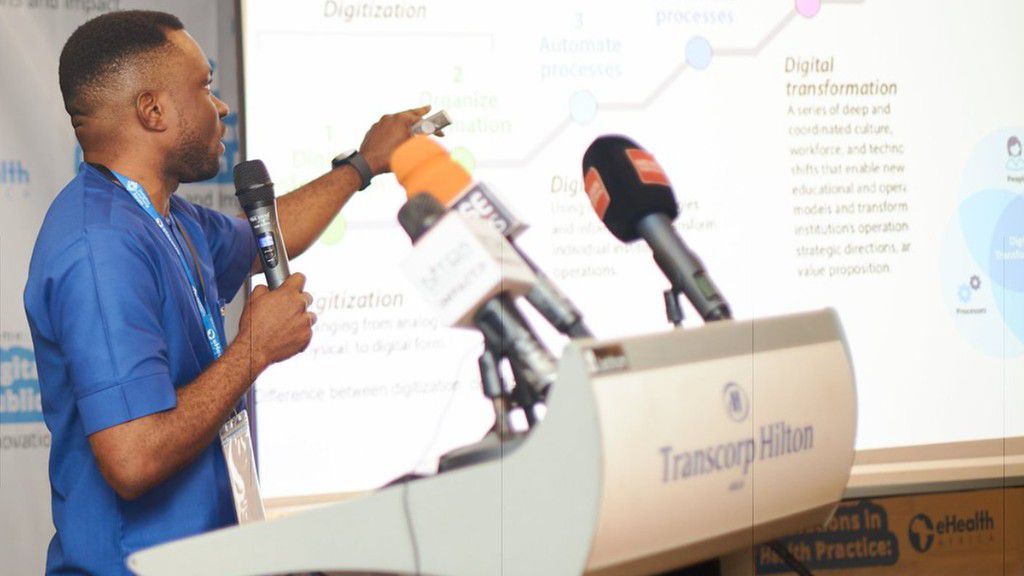Experts synergise to promote digital solutions for Nigeria's public health sector
![Digital Health Solution. [Getty Images]](https://image.api.sportal365.com/process/smp-images-production/pulse.ng/26092024/d4b7cb37-b865-401c-b8d5-c45cf44bd608?operations=autocrop(700:467))
Health experts have resolved that Nigeria's public sector must embrace digital innovations as solutions to health issues.
This decision was made at the Insights Learning Forum, which eHealth Africa organised in Abuja on Wednesday, July 31.
The event, themed "Digital Innovation in Public Health Practice," gathered key stakeholders and innovators to discuss the impact and future of digital solutions in the health sector.
Experts speak on digital health solutions in public health
Speaking to Pulse at the event, Dr David Akpan, Deputy Director of eHealth Africa, highlighted the need for digital health innovators and stakeholders to converge and discuss digital innovation ideas in public health.

"We aim to evaluate these innovations' impact and explore collaboration opportunities to enhance their effectiveness," he said.
Addressing the challenges of implementing digital health solutions, particularly in Northern Nigeria, Dr Akpan emphasised the importance of a human-centred design approach.
He said, "We must consider the users during the development phase and pilot innovations to ensure they address real needs and are user-friendly. This approach ensures that solutions are not only innovative but also practical and sustainable."
Highlighting the forum's broader objectives, Ota Akhigbe, Director of Partnerships and Programs at eHealth Africa, stated, "Our focus is to harness insights and ideas from stakeholders across Africa. We aim to achieve digital transformation in health outcomes through collaboration and data-driven decision-making."

Akhigbe acknowledged Nigeria's infrastructure and data accuracy challenges but expressed optimism, stating, "The optic of digital solutions is promising, though infrastructure gaps remain. This forum is about identifying converted stakeholders and decision-makers who can help bridge these gaps. By this time next year, we hope to have tangible progress to report."
FG's role in digital solutions in public health
On government involvement, Akhigbe noted, "The federal government's support for digital transformation is encouraging. This platform serves as an advocacy tool to raise awareness and engage government agencies, ensuring that these innovations receive the necessary support and funding."

Kabir Suleiman, Incident Manager of the Polio Emergency Operation Center in Katsina State, reinforced the significance of digital technology in public health.
"Digital tools have already shown great impact, especially in disease surveillance. Real-time data sharing and decision-making have transformed our approach to managing health crises," he said.
)
)
)
)
)
)
)
)
)
)
)
)
)
)
)
)
)